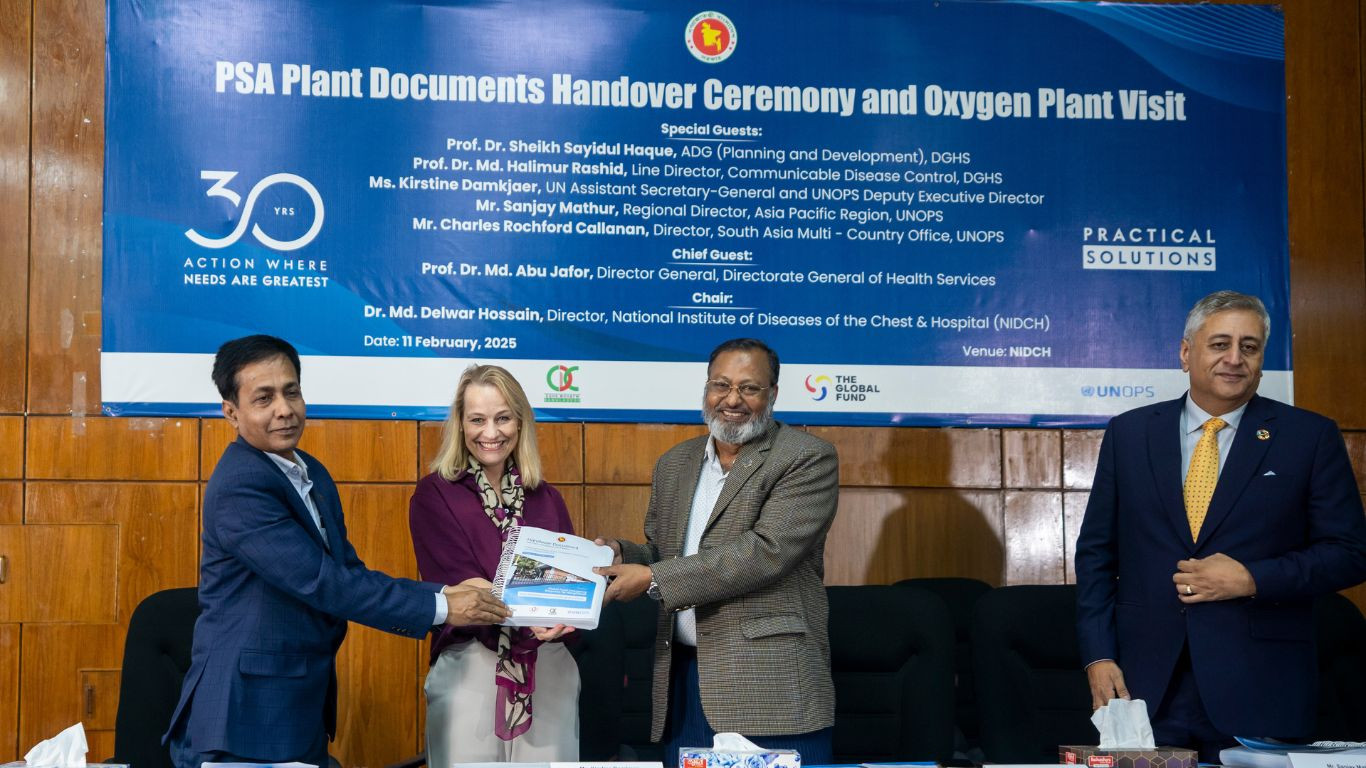Diplomatic Correspondent
Published:2025-02-11 20:20:14 BdST
UN to support for strengthening Bangladesh’s health infrastructure
Visiting UN Assistant Secretary-General and Deputy Executive Director of the United Nations Office for Project Services (UNOPS) Kirstine Damkjær has reaffirmed support to strengthen healthcare infrastructure in Bangladesh by ensuring accessible and sustainable solutions.
“We take great pride in working alongside our partners to help Bangladesh in achieving its healthcare goals," she said during her visit to the National Institute of Diseases of the Chest and Hospital (NIDCH) in Dhaka on Tuesday.
NIDCH is one of 29 hospitals across Bangladesh where UNOPS, in collaboration with partners such as National Malaria Elimination Programme (NMEP), and the Directorate General of Health Services (DGHS), and with funding from the Global Fund, has constructed PSA (Pressure Swing Adsorption) plants to strengthen the national healthcare system.
The initiative is part of the Bangladesh government’s Covid-19 emergency response plan.
Partner hospitals were strategically selected across Bangladesh as part of this initiative, including NIDCH, to ensure that underserved communities have access to essential medical services.
Working closely with partners, UNOPS supported the procurement of essential medical equipment and supplies while enhancing healthcare infrastructure through the installation of oxygen therapy units.
As a result, Bangladesh’s most underserved communities now have strengthened healthcare systems capable of delivering critical medical services during health emergencies such as the Covid-19 pandemic.
During the visit, Kirstine Damkjær said, "UNOPS remains committed to strengthening Bangladesh's healthcare infrastructure by ensuring accessible and sustainable solutions. We take great pride in working alongside our partners to help Bangladesh in achieving its healthcare goals."
Prof Dr Halimur Rashid, Line Director of Communicable Disease Control of DGHS, said, "This initiative is a game-changer for our healthcare system. For too long, we have relied on cylinder-based oxygen, which is often unreliable, costly, and difficult to manage during emergencies. With these PSA plants, 29 public hospitals can now generate their own oxygen, reducing dependence on external suppliers and ensuring critical care is never compromised.”
Unauthorized use or reproduction of The Finance Today content for commercial purposes is strictly prohibited.


